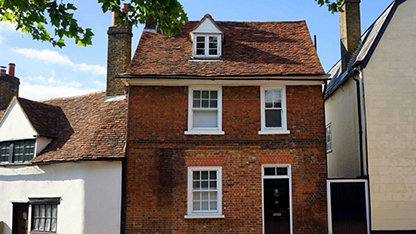RICS Residential Market Survey, June 2023
- Eight-month low for new buyer enquiries points to a renewed deterioration in UK sales market
- Rising tenant demand continues to battle against lack of available properties with June’s survey pointing to the largest decline in landlord instructions since May 2020
- 58% of survey participants note that homes with better energy efficiency credentials are holding their value in the current market
- Average number of homes available for purchase remains low on a long term historical comparison
The results of the June 2023 RICS UK Residential Survey points to a renewed deterioration in sales market activity.
As borrowing costs continue to rise, many of June’s survey results have fallen deeper into negative territory in terms of net balance readings. However, it is important to note that most of these figures remain a little less downbeat than the lows seen at the end of 2022.
New buyer enquiries slipped to a net balance of -45%, down from -20% in May, which is the lowest reading recorded since October 2022 (-51%). Respondents across all parts of the UK reported a firmly negative trend in buyer enquiries compared to May.
For newly agreed sales, the net balance fell to -34% this month, which is notably weaker than the figure of -8% in May. In fact, June’s return represents the most downbeat figure since December 2022, when the net balance stood at -38%.
The survey indicator representing trends in house prices nationally, declined to a net balance of -46% from the -30% seen in May, with price expectations now standing in firmly negative territory at both the three and twelve month forecast markers.
Significantly, of those who held a view on the subject, 58% of survey participants noted that homes with better energy efficiency credentials are holding their value in the current market, highlighting the growing importance of sustainability within the housing sector.
Looking across to the rental market, a net balance of +40% of respondents saw an increase in tenant demand. However, at the same time, the net balance for landlord instructions dropped to -36%. With rising demand still being met with a lack of available properties to let, a net balance of +53% of contributors to the survey anticipate rental prices being driven higher over the near-term.
Simon Rubinsohn, RICS Chief Economist, commented:
“The latest increase in interest rates and the impact this has already had on mortgage rates is clearly visible in the key RICS metrics regarding buyer enquiries, sales and prices which have all retreated over the past month.
“Inevitably in this environment, activity levels are likely to remain relatively subdued. However, an important message coming back from RICS agents is around ensuring prices are set with an eye on the market conditions of today, rather than the recent past; when this is done, sales are taking place.
“It is also worth bearing in mind that house prices are only very modestly down on their recent highs and well above where they stood prior to the onset of the pandemic.
“Further declines are possible but need to be seen in the context of the previous strength in the market. Additional questions included in the latest survey also provide some support for the notion that, on balance, properties with better energy efficiency credentials are holding their value better than some others”.
-ENDS-
About RICS
We are RICS. Everything we do is designed to effect positive change in the built and natural environments. Through our respected global standards, leading professional progression and our trusted data and insight, we promote and enforce the highest professional standards in the development and management of land, real estate, construction and infrastructure.
Our work with others provides a foundation for confident markets, pioneers better places to live and work and is a force for positive social impact.
For more information:
Kate King
Kris Hicks










